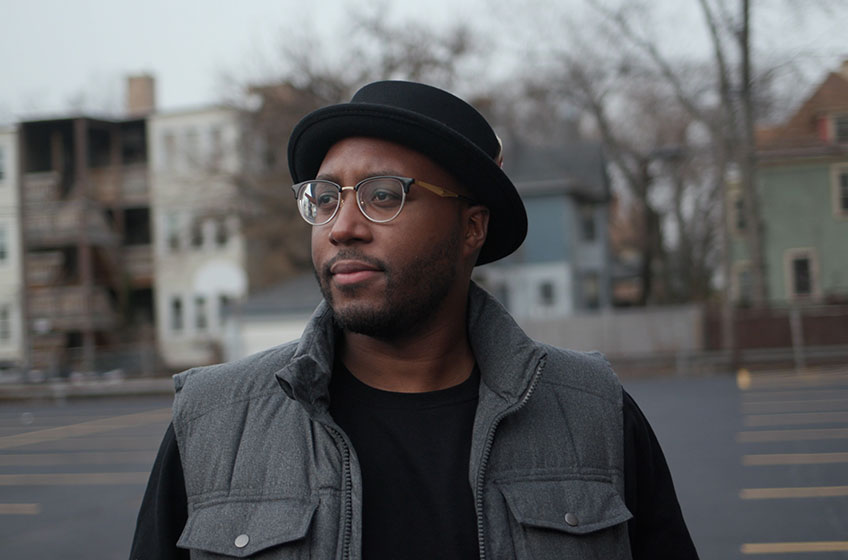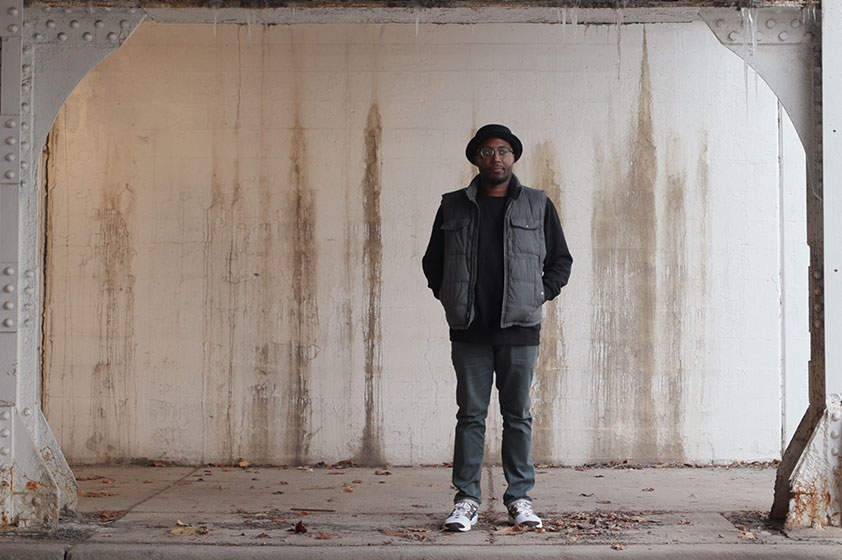Jon Kelly is walking on eggshells.

Jon Kelly has spent years on probation dreading that one misstep could change everything.
"Knowing that in the back of my mind, if I do one little thing wrong, I'll be back in prison—it was just hard to bear," he says.
Over the last decade, Jon has called Chicago home, planted a church on the West Side, and earned his bachelor's and master's degrees. He's a husband, father, and pastor with a passion for sharing the Gospel, supporting new churches nationwide, and serving his community.
It's evident that Jon has left his troubled past behind. But he's still on probation, a form of community supervision, after spending nine years on parole for a crime he committed more than 20 years ago.
WHAT IS COMMUNITY SUPERVISION?
The most common forms of community supervision are probation and parole. Probation allows a defendant to serve their sentence out in the community as an alternative to incarceration, while parole is a release incentive aimed to promote rehabilitation among people in prison.
From 1990 to 2012, the number of people returning to society from prison without post-release community supervision, monitoring, or reentry assistance increased by 119%. Today 3.9 million people are on community supervision, being held accountable while they are at home, working, or making amends.
When Jon first came home from prison, he moved in with his mother in the suburbs of Philadelphia and planned to enroll at Moody Bible Institute. Eventually, he relocated to his own home with his wife and children in Chicago. But parole restrictions kept Jon moving at a slow pace, making it difficult to reach his goals and damaging his morale in the process.
TYPES OF COMMUNITY SUPERVISION
Probation
- Incarceration alternative.
- Length and conditions are determined by a judge.
- May involve regular check-ins with a probation officer.
Parole
- Not every prisoner is eligible.
- Sometimes parole supervision is mandatory after incarceration.
- Release is conditional; a person must satisfy a parole board that they have rehabilitated.
- In many cases, a person paroled must serve the rest of their sentence on community supervision.
Home Confinement
- Also called house arrest or home detention.
- Usually involves electronic monitoring of the individual.
WHEN COMMUNITY SUPERVISION GOES WRONG
Limited to traveling within his county, Jon would turn down invitations to speak at conferences a few hours' drive from Chicago, because traveling for the trip would mean breaking his probation. Limited travel also meant fewer job prospects. "It was embarrassing for me, because I had job opportunities, and not being allowed to travel just wasn't helpful," says Jon.
Community supervision impacted every area of Jon's life, from grocery shopping with his wife a few miles from home, to ministering to his neighbors. Local law enforcement championed Jon as a role model for people who are caught up in street life, like he once had been. But, due to his probation conditions, mentoring any known gang members was out of the question.
One of the most common conditions of community supervision is to "refrain from activity with criminals." Interpretation of such restrictions is often left to the individual probation or parole officer. Though this is intended to promote healthy lifestyle choices and success, it can pose an undue burden. What if a returning citizen's relatives or pastor has a record? What if a returning citizen has valuable coaching for people who are lost in the complexity of gang life and can help them find a better path?
"One of the challenges was trying to reconcile practicing my faith—which tells me to love my neighbor and to reach those who are lost and hurting—with my parole restrictions," Jon explains. "If I want to go and talk to these young men on the corner and take them out to a Chicago Bulls game or go play basketball in the gym … technically, I'm not allowed to talk to them. If I get caught doing that, I could go back to prison."
A NEVER-ENDING PUNISHMENT
Under tight restrictions, Jon struggled to plant roots and to be present for his own family. When his wife and children traveled to family gatherings out of state, he had no choice but to stay behind.
Although his family could move freely without him, they still felt the weight of his situation.
"When you're on parole, your family is on parole," says Jon. "It's not just you. It's your wife, your kids. I was blessed enough that when I was in the thick of my days on parole, that my kids were too young to truly understand what was going on."
While Jon strived to be a family man, reliable pastor, and a dutiful student, his probation officers' schedules often disrupted his success. Some check-in calls required Jon to step away from work in the middle of the day, which required an explanation to his boss. Other check-in calls frequently found Jon sitting on hold for an hour and a half or more: "I had to figure out a two-hour window where I could type and do my homework while waiting. The actual call was like a minute long."

A COMMUNITY’S BURDEN
Jon doesn't blame the probation officers for doing their job. But he knows prolonged supervision is a burden for them, too. They often handle an overwhelming number of caseloads. And with the frequency of new parole officer assignments, the process of gaining trust has to begin all over again.
For Jon, after more than nine years on probation, the pressure is on. One wrong move, one missed meeting—a small technical violation could send him back. He's seen many others give up under the pressure. Over a third of all prison admissions in 2020 were due to basic community supervision violations.
"I often felt like I was on eggshells," says Jon. "You're not allowed to have a bad day. You're not allowed to be human."
A NEW CREATION
Where terms are unjustly long, or conditions are too restrictive, we waste human potential, perpetuate the cycle of crime and incarceration, and erode the stability of communities and families. If community supervision is going to do a good job of holding people accountable, both the length of supervision and the conditions of supervision must be well tailored. When it is too long or the conditions are too oppressive, it sets people up for failure.
Jon is scheduled to be released officially from supervision in March 2022. He knows what this means on paper: He can finally live out his transformation as a free man. But he's less sure about the prolonged effects of this punishment.
"They won't monitor me, they won't track where I go, but mentally and emotionally I am not the same," says Jon. "There's a mental and emotional scar that I just have to process."
THE POWER OF REALIZED POTENTIAL
"I don't know where I would be if it wasn't for the Gospel. I don't know how many times I have to say to myself 'I'm a new creation in Christ,' because in the criminal justice system, I'm a number, and I'm my last name, and I'm what I did. It's still very hard to see yourself as a human being, a dad, a husband, a son. A good neighbor trying to love my neighbors."
Today, in addition to pastoring Chicago West Bible Church, Jon is pursuing his doctorate through Southern Seminary in Kentucky. He also advocates for criminal justice reform with Prison Fellowship® with the hope that more people will find their second chance after prison.
"What's the point of freeing men and women if we restrict them so much that they can’t be productive?" Jon asks. "The success of any man or woman on parole or probation is everyone's success."
WATCH: COMMUNITY SUPERVISION
GET INVOLVED
Many people like Jon Kelly are eager to live out their transformation as free and productive citizens. But when supervision is too long or restrictive, it only sets people up for failure.
Ask the president and Congress to support the Safer Supervision Act! It’s quick and easy—we’ve even drafted a letter for you.
DID YOU ENJOY THIS ARTICLE?
Make sure you don' t miss out on any of our helpful articles and incredible transformation stories! Sign up to receive our weekly newsletter, and you' ll get great content delivered directly to your inbox.
Your privacy is safe with us. We will never sell, trade, or share your personal information.